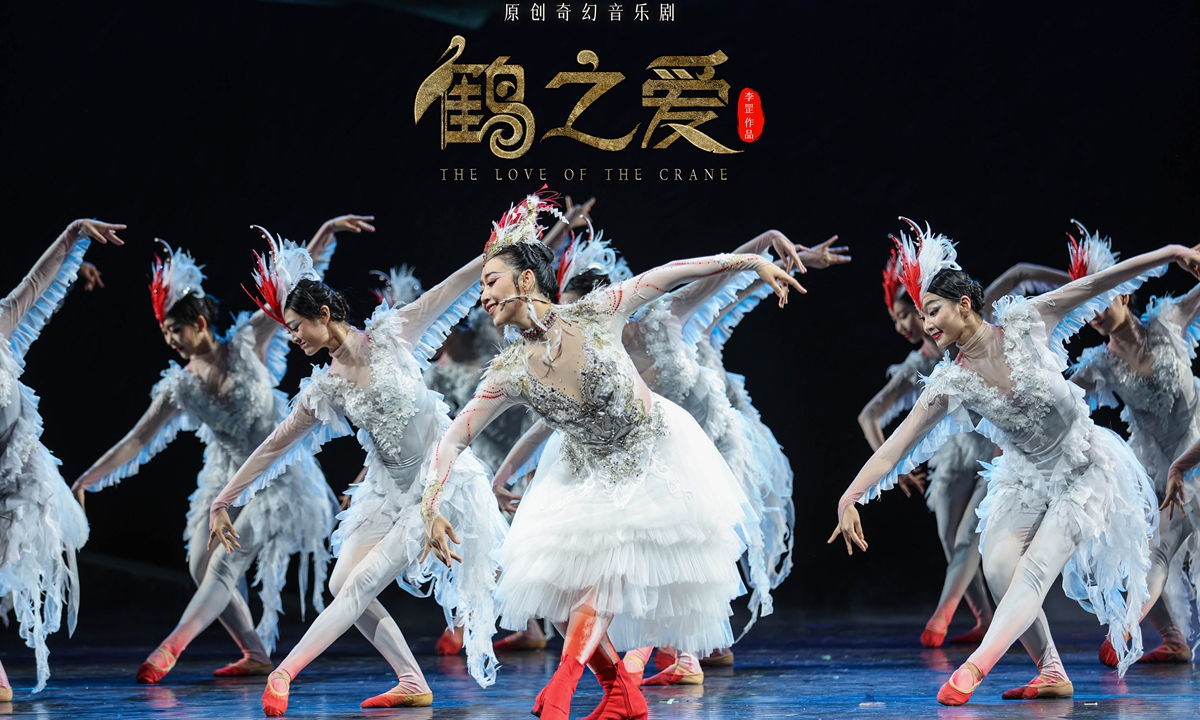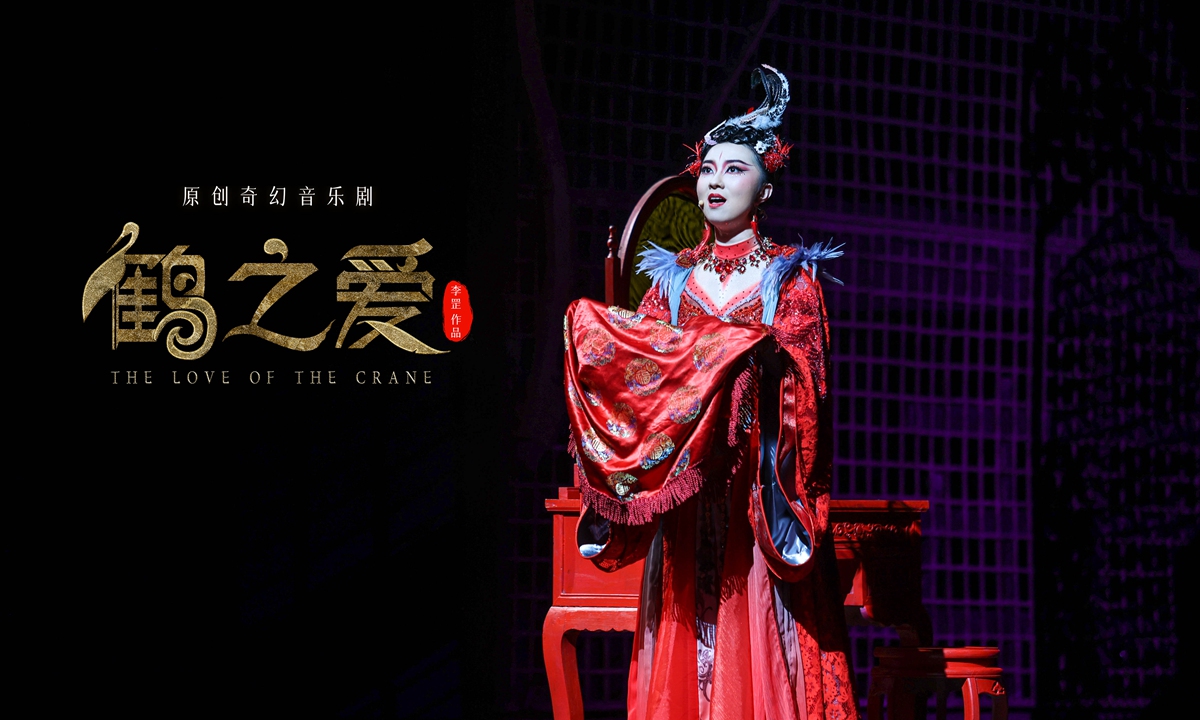
A large-scale original musical, The Love of Cranes displaying a picture of the Khitan (or Qidan) tribe, a nomadic people of northern China is performed at the Taihu Stage Art Center, branch of National Centre for the Performing Arts, from July 8 to 10. Photo: Courtesy of Taihu Stage Art Center
A fantasy musical displaying a picture of the Khitan (or Qidan) tribe, a nomadic people of northern China wrapped up its last performance at the Taihu Stage Art Center, a newly built branch of the National Centre for the Performing Arts, on Sunday.
As a large-scale original musical
, The Love of Cranes takes the Liao Dynasty (916-1125) as the background, an era named after the Khitan tribe that ruled the northern part of China, and incorporates elements such as the most representative Khitan octagonal bronze mirror. The story tells love-hate entanglement between humans and cranes, showing a story of romance and fantasy.

A large-scale original musical, The Love of Cranes, displaying a picture of the Khitan (or Qidan) tribe, a nomadic people of northern China is performed at the Taihu Stage Art Center, branch of National Centre for the Performing Arts, from July 8 to 10. Photo: Courtesy of Taihu Stage Art Center
The Khitan octagonal bronze mirror, one of the Khitan pieces unearthed in China, has written records of the culture, social activities and ideas of Khitan people . The Khitan octagonal bronze mirror has the largest surface and the longest text, which has important academic value for studying the culture and ideas of the Khitan people in the Liao Dynasty.
"We use the Khitan octagonal bronze mirror as the visual fulcrum for the stage, which is also the main element throughout the performance. In addition, we also use crane feathers to create a poetic atmosphere," said director Li Gang, who considered this performance as a cultural root-seeking work dedicated to his hometown Baicheng, in Northeast China's Jilin Province, the place where the Khitan nomads lived during the Liao Dynasty.

A large-scale original musical, The Love of Cranes, displaying a picture of the Khitan (or Qidan) tribe, a nomadic people of northern China is performed at the Taihu Stage Art Center, branch of National Centre for the Performing Arts, from July 8 to 10. Photo: Courtesy of Taihu Stage Art Center
Also the music of the show aims to present the diversity with an elegant and refined style, but at the same time, with rustic and rough elements to reach a multidimensional musical texture.
"With a romantic aesthetic, the musical depicts a wonderful picture of the unique scenery of grassland and wilderness," said Li.
Love of Cranes is the first performance in the Taihu Theater since its reopening after COVID-19. As the branch of the National Centre for the Performing Arts, it also has the most professional stage equipment across the country.






